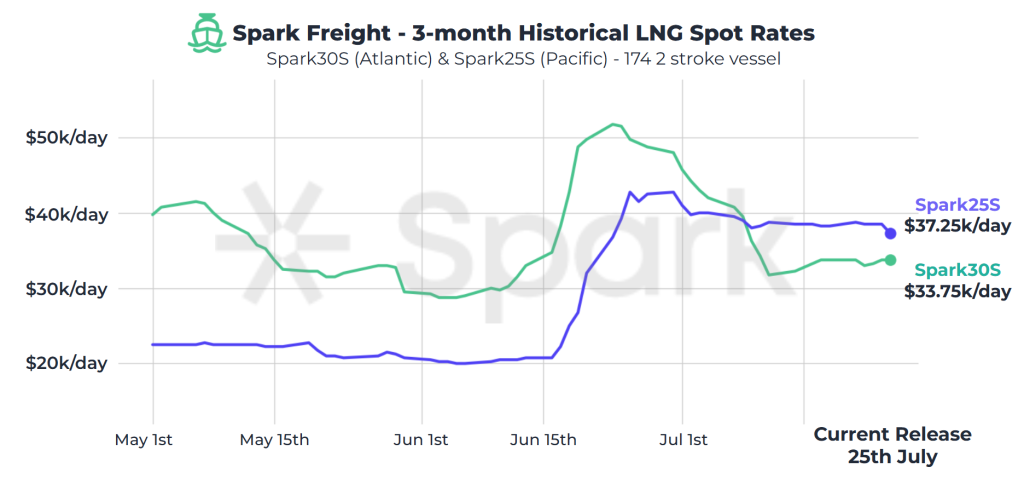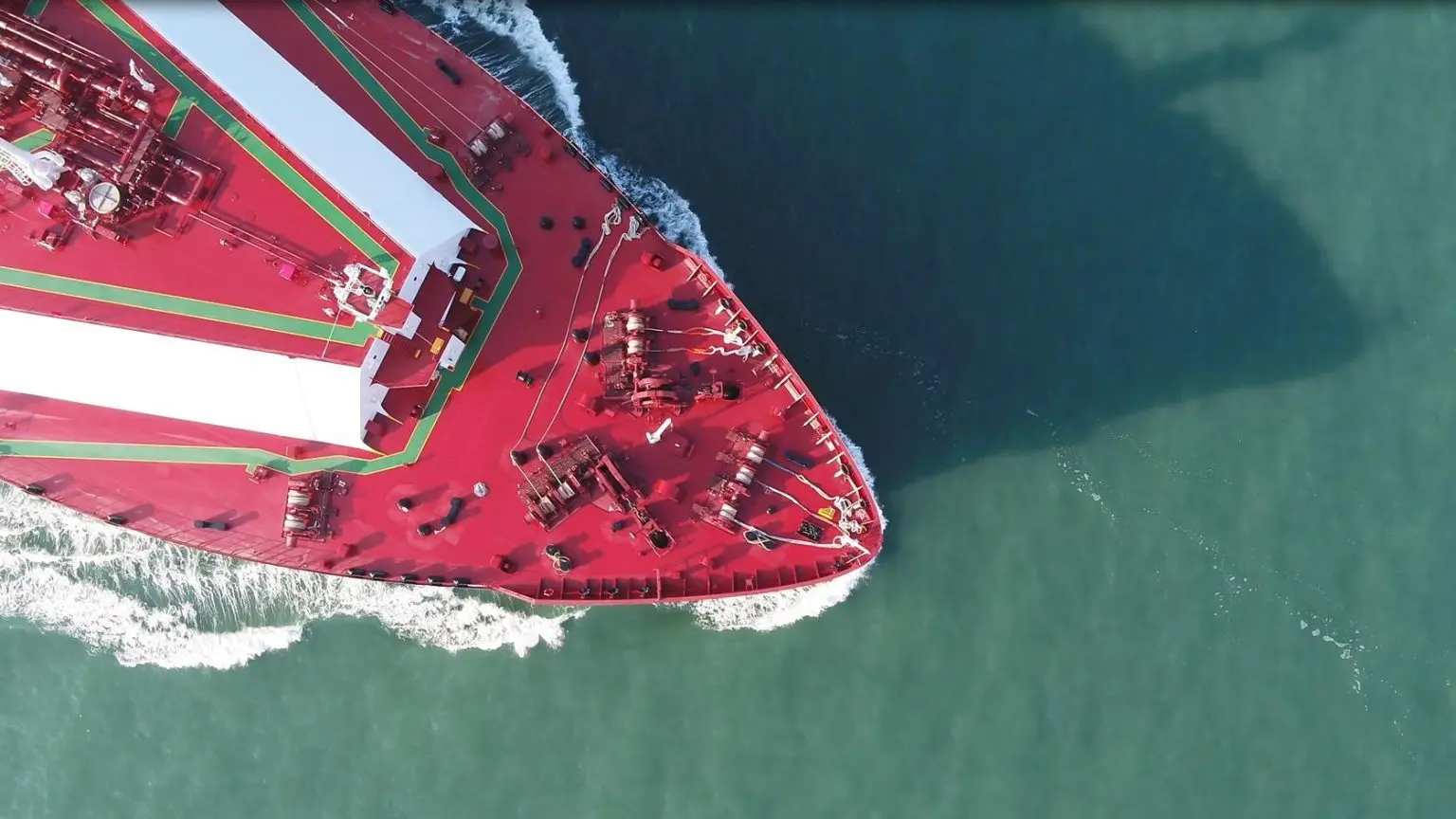This story requires a subscription
This includes a single user license.
Spark’s data lead, Qasim Afghan, told LNG Prime on Friday that Spark30S (Atlantic) rates were at $33,750 per day, while Spark25S (Pacific) rates dropped by $1,000 per day to $37,250 per day and continue to price at a premium to Atlantic rates.

“Spark30 (Atlantic) forward freight rates for Q4 2025 dropped sharply this week following FFA market activity for Dec25 – Q4 rates are now pricing lower than current Q3 Atlantic freight rates, and failing to exhibit the expected seasonal highs seen in years previous to 2024,” he said.
European prices down
In Europe, the SparkNWE DES LNG dropped compared to last week.
“The SparkNWE DES LNG front month price for August decreased by $0.546, pricing in at $10.723/MMBtu, the lowest its been in almost three months,” Afghan said.
He said the basis to the TTF “remains relatively steady at $0.435/MMBtu.”
“The US front month arb to NE-Asia (via the Cape of Good Hope) narrowed by $0.123 this week, pricing in at -$0.128/MMBtu but continuing to incentivise US cargoes to deliver to Europe. After closing out for the first time in seven weeks, the US front month arb to NE-Asia via Panama is now open again, assessed at $0.041/MMBtu and pointing to Asia instead of Europe,” Afghan said.

Data by Gas Infrastructure Europe (GIE) shows that volumes in gas storages in the EU continued to rise and were 65.99 percent full on July 23.
Gas storages were 63.88 percent full on July 16, and 83.34 percent full on July 23, 2024.
JKM
In Asia, JKM, the price for LNG cargoes delivered to Northeast Asia in September 2025 settled at $12.180/MMBtu on Thursday.
Last week, JKM for September settled at 12/MMBtu on Friday, July 18.
Front-month JKM dropped to 11.980/MMBtu on Monday. It rose to 12.070/MMBtu on Tuesday and decreased to $11.930 on Wednesday.
State-run Japan Organization for Metals and Energy Security (Jogmec) said in a report earlier this week that JKM for last week “fell to low-$12s/MMBtu on July 18 (September delivery) from high-12s/MMBtu the previous weekend.”
“While JKM rose on July 14 due to high temperatures, it declined later in the week as the procurement of August-delivery cargoes came to an end and traders began selling. The switch to September delivery, coupled with perceptions of looser supply-demand conditions, also contributed to the decline. In some regions such as China, the current price level was seen as expensive, leading to muted spot procurement,” it said.

